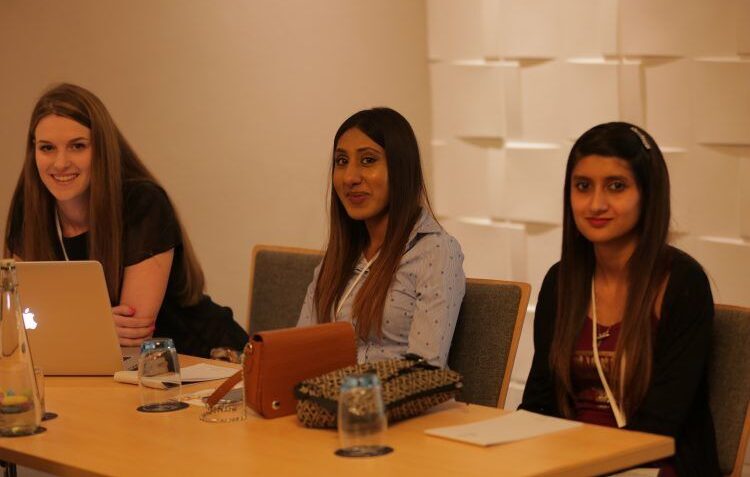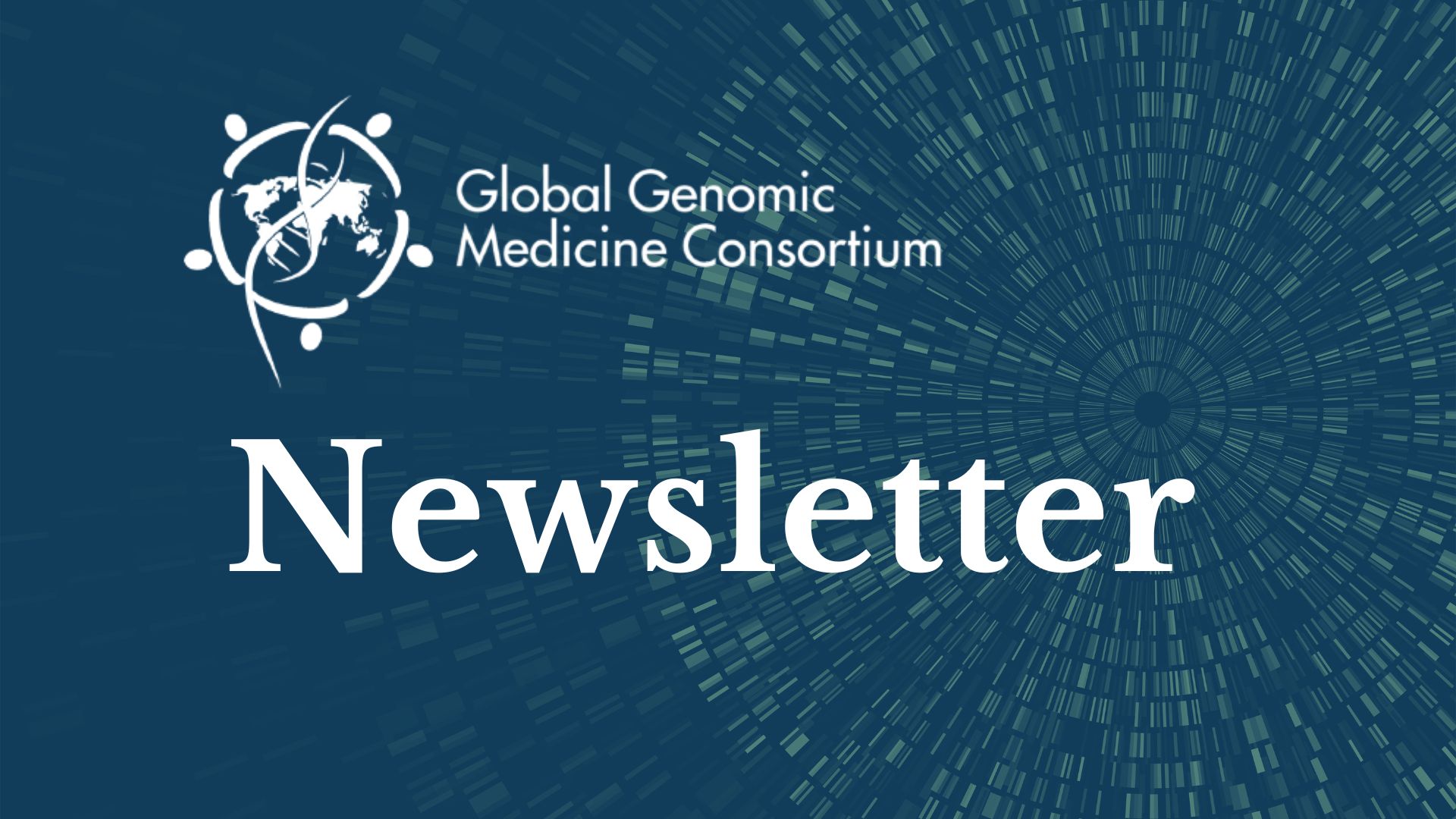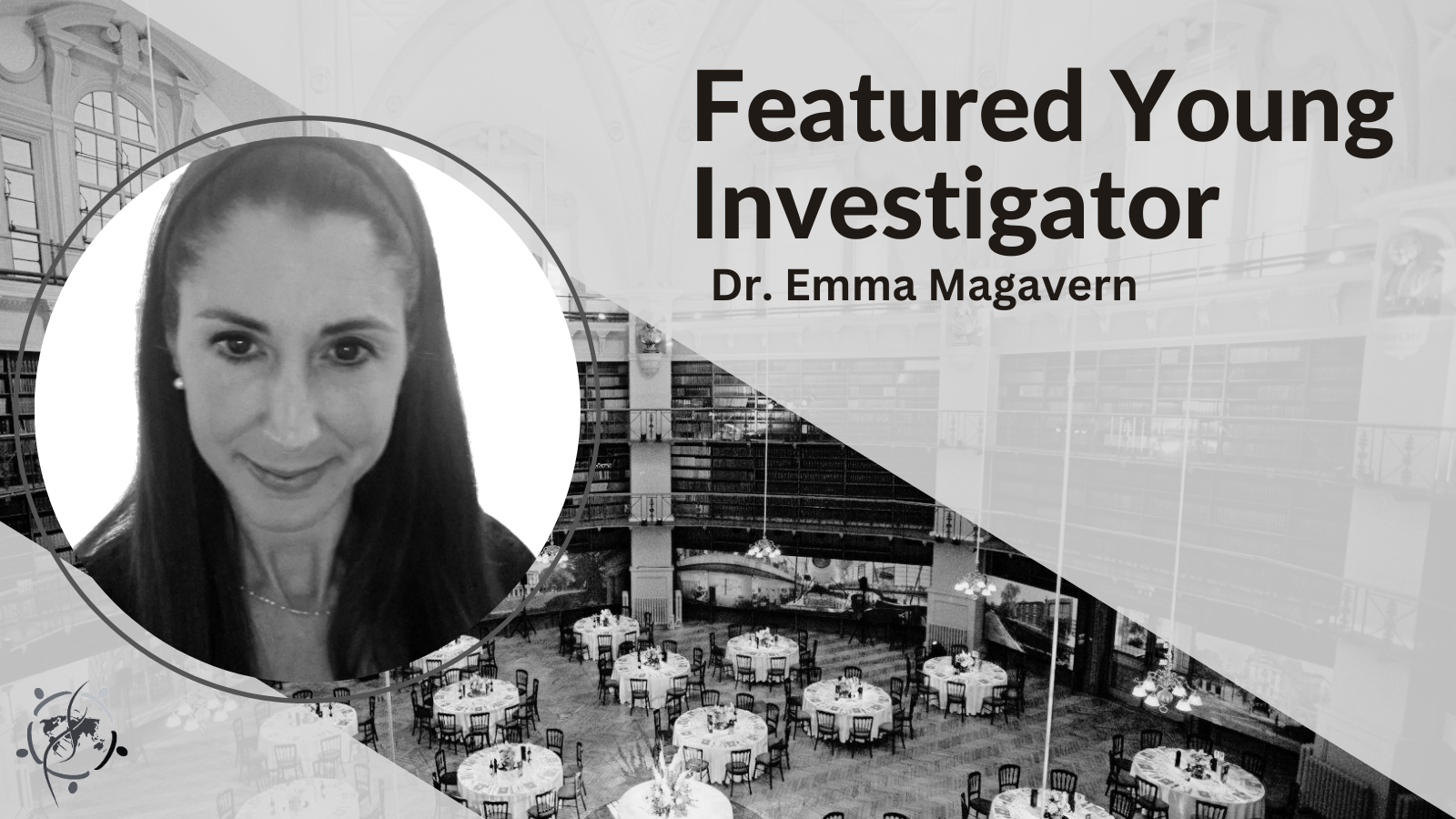G2MC Harnesses the Power of Young Investigators

The Global Genomic Medicine Collaborative (G2MC) is committed to preparing for the future of genomic medicine implementation by engaging with young investigators around the world. The organization has been taking steps to ensure our members are mentoring and cultivating young talent to help bring new genomic medicine technologies forward all over the world.
“Our young investigators are producing high-caliber work,” said Teri Manolio. “Their energy, drive and innovation will help us implement genomic medicine in their communities and across the globe.”
At the G2MC Cape Town meeting in November 2018, the organization invited young investigators from all over the world to attend and showcase their original research. Prior to the meeting, the planning committee had released a request for abstracts and circulated it to the G2MC membership to distribute to their young investigators and colleagues. Victoria Nembaware (University of Cape Town) was instrumental to this process as she used her network within the African Genomic Medicine Training Initiative and the Human Heredity and Health in Africa (H3Africa) consortium to help spread the word.
About 60 abstracts were received, and we were pleased to include almost all young investigators to participate in the meeting through oral presentations, flash talks and/or poster presentations. This opportunity allowed young investigators, including students, postdocs and young faculty, to showcase their talent and capabilities to global leaders in genomic medicine.
Oral presentations were judged, and the top five presenters were awarded one of two books: Genomic and Precision Medicine: Primary Care and Genomic Medicine in Emerging Economies.
Winners
First place:
African-specific NPHS2 V260E mutation in SR-FSGS cases
Melani Govender
Sydney Brenner Institute for Molecular Bioscience and Division of Human Genetics, National Health Laboratory Service and School of Pathology, Faculty of Health Sciences, University of the Witwatersrand, Johannesburg, South Africa
Second Place:
Exploring the Molecular Basis of Hereditary Spinocerebellar Degeneration in a Large Sudanese Family
Arwa Babai
Institute of Endemic Diseases, University of Khartoum, Khartoum, Sudan
Third Place:
Targeted Next-Generation Sequencing Identifies Novel Variant
Oluwafemi Oluwole
Division of Molecular Biology and Human Genetics, Stellenbosch University, Cape Town, South Africa
Fourth Place:
Distinct Profiles of warfarin Pharmacogenes in Africans
Arinao Ndadza
Pharmacogenomics and Drug Metabolism Research Group, Division of Human Genetics, Department of Pathology & Institute of Infectious Disease and Molecular Medicine (IDM)
Fifth Place:
Genome-wide discovery of long noncoding RNAs in HIV-1 non-progressors
Stanford Kwenda
Cell Biology Lab, Centre for HIV and STI, National Institute for Communicable Diseases, Johannesburg, South Africa
In the time since the Cape Town meeting, G2MC has continued to find new ways to engage young investigators. Currently, chairs of the working groups are finding people to help mentor these young investigators and provide hands-on experiences in specific activities within their groups.
Plans are also already underway to include more oral presentations, flash talks, and poster presentations from young investigators at another Young Investigators Forum during the 5th International G2MC meeting in Santiago, Chile in May 2020.








